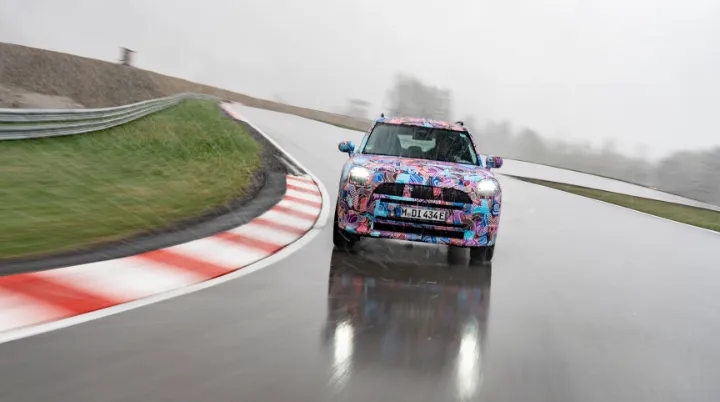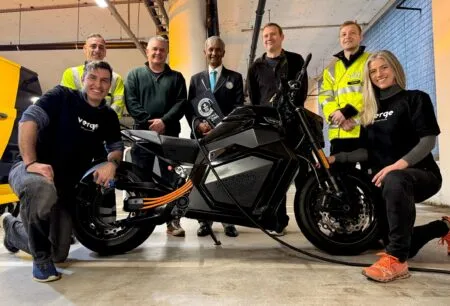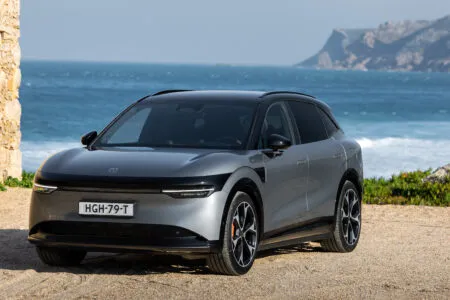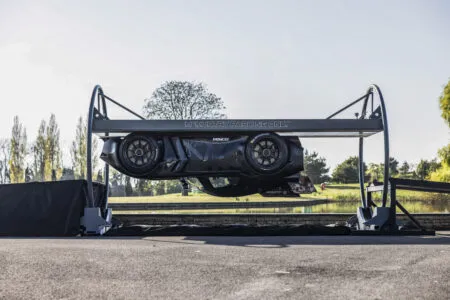MINI says it combines a go-kart feeling with a minimal ecological footprint and continues the success story of the largest MINI model. This will be the first time a MINI model is produced in Germany, with production slated to start at the BMW Group Plant Leipzig in November 2023.
Powertrain
The new generation of the largest MINI model is fully electric and locally emission-free. The MINI Countryman E delivers 140 kW/191HP, whereas the MINI Countryman SE ALL4 is the brand’s first all-wheel-drive fully- electric vehicle. Two highly integrated drive units on the front and rear axles together generate an output of 230 kW/313HP, including a temporary boost. The battery capacity is 64.7 kWh, with an estimated range of around 450km (280 miles).
Materials and Design
The vehicle length has increased to 4,429mm, and the height to 1,613mm. Its light-alloy wheels are manufactured from up to 70 percent secondary aluminium.
In combination with the use of green electricity in production, CO2 emissions can be significantly reduced compared with conventional manufacturing processes.
The surfaces of the dashboards, steering wheel, vehicle headliner and floor, and floor mats are made of recycled polyester obtained from PET bottles and carpet remnants. This high-quality, colourful and comfortable alternative to traditional materials reduces CO2 emissions along the value chain by up to 85 percent and emphasizes the focus on minimizing the ecological footprint of the next MINI model generation.
Long-term sustainability
The long-term sustainable strategy for energy generation and consumption of the BMW Group’s “green plant” at the Leipzig site includes four wind turbines with a height of 190m on the factory premises. This could generate more than 20GWh of electricity from wind energy per year.
In the Battery Farm up to 700 second-life high-voltage batteries from BMW i3 vehicles are used to store energy, such as that generated by the wind turbines. By storing the energy on the premises, local energy management can be optimised and the electrical grid kept stable.
The BMW Group is expanding on-site e-component production capacity by eight production lines by 2024 and investing more than 800 million euros. The decarbonization of production by replacing fossil fuels with hydrogen is the focus of what is already one of the most modern and sustainable automotive production facilities in the world.





